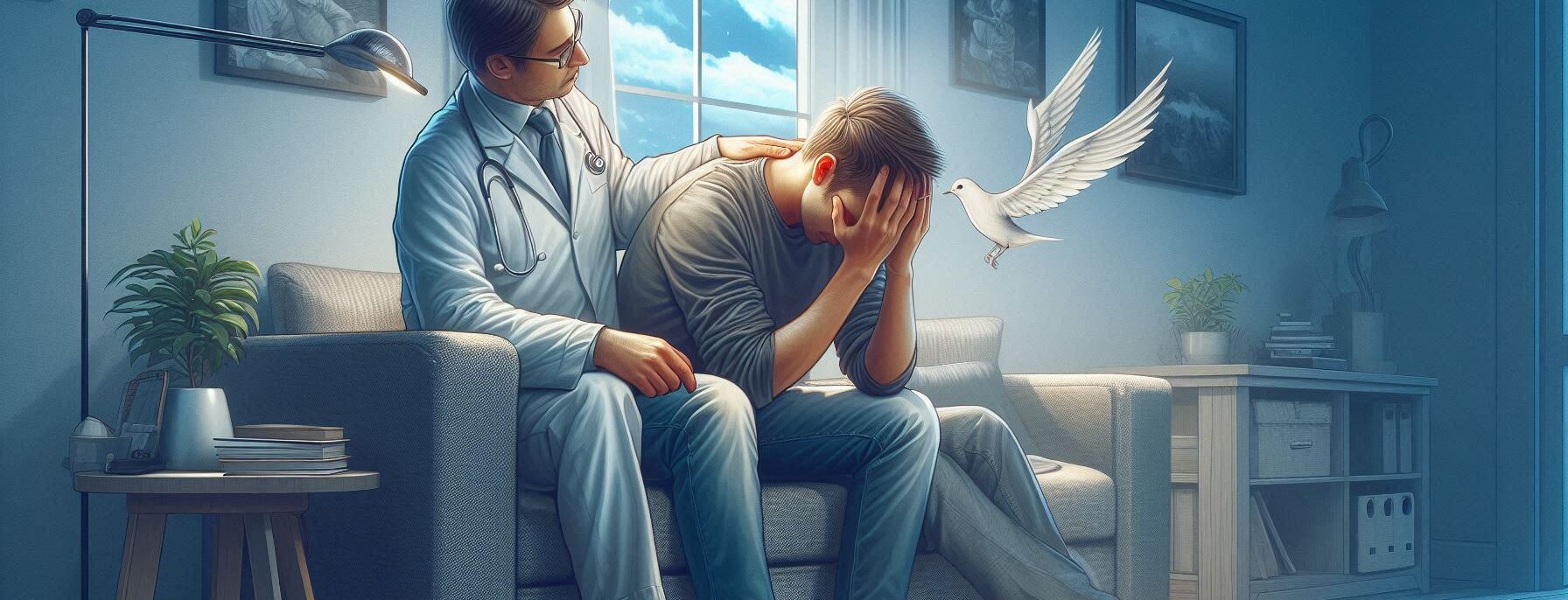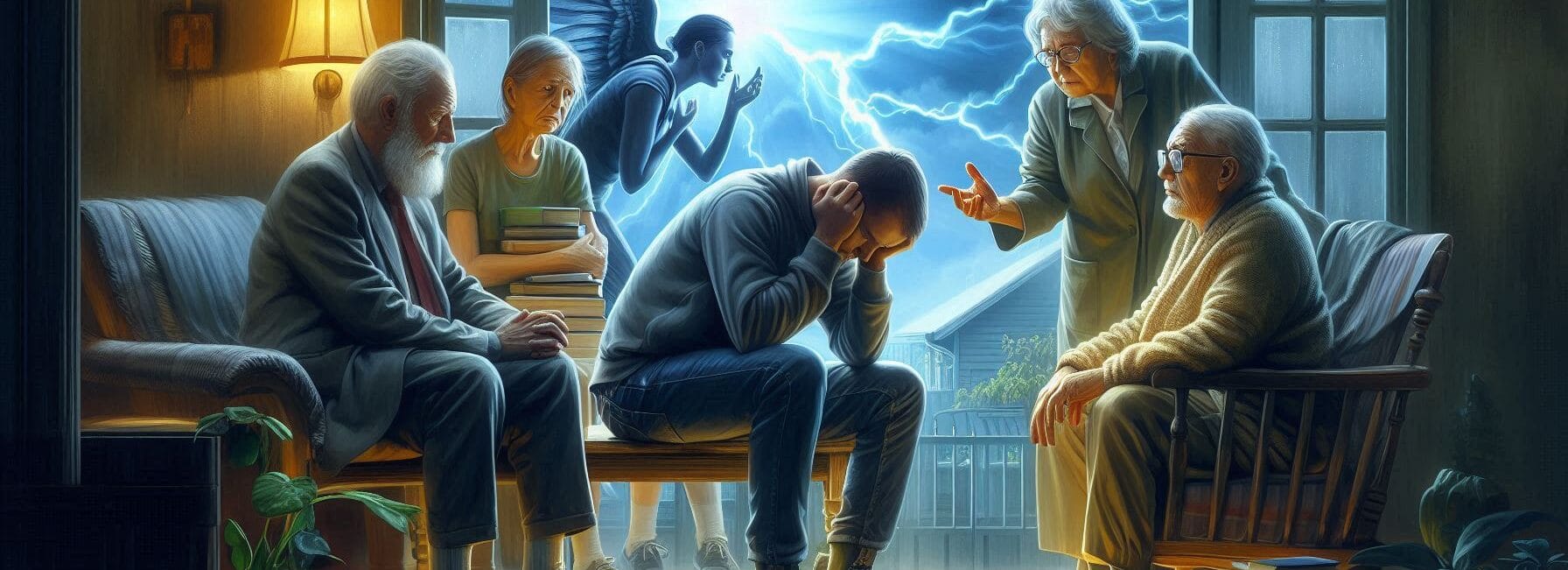So, you’ve just had a baby! Congratulations! You’re now the proud owner of a tiny human who will eventually turn into a toddler capable of throwing food with alarming accuracy.
However, amidst all the joy and excitement, there’s something that can sneak up on new parents like an unexpected diaper blowout: postpartum depression (PPD).
Now, before you panic and start Googling “how to raise a cactus,” let’s break down what PPD is, why it happens, and how to navigate through this rocky terrain with your sanity intact.
Top Takeaways and Key Concepts
- Recognize postpartum depression (PPD) as persistent sadness, anxiety, or hopelessness after childbirth.
- Monitor signs like sleep or appetite changes, irritability, and detachment from your baby.
- Understand hormonal shifts, stress, and societal pressures as key contributors to PPD.
- Seek help promptly from family, friends, or trained maternal mental health professionals.
- Practice self-care daily and build supportive networks to maintain emotional well-being.
Summary of This Article
This article explains postpartum depression (PPD), highlighting its causes, symptoms, and coping strategies for new parents. PPD can arise from hormonal changes, sleep deprivation, stress, and societal expectations, leading to persistent sadness, anxiety, or detachment from a newborn. Recognizing symptoms early, seeking professional and social support, and practicing self-care are essential steps for recovery. Building connections with supportive networks, including peer groups or online communities, helps combat isolation and fosters emotional resilience. Overall, the article emphasizes understanding, accepting, and proactively managing PPD to navigate parenthood healthily.
What is Postpartum Depression?

Let’s see, first things first—what exactly is postpartum depression? In simple terms, it’s a type of depression that can occur after childbirth.
It’s not just feeling sad because you haven’t slept in three weeks or because your favorite coffee shop stopped serving pumpkin spice lattes. PPD can hit hard and make you feel overwhelmed, anxious, or even hopeless.
Interestingly enough, many people think that once the baby arrives, everything should be sunshine and rainbows. But here’s the kicker: those adorable little bundles of joy come with their own set of challenges.
Hormonal changes are swirling around in your body like they’re at a rave party while you’re trying to figure out how to operate a breast pump. And guess what? That rollercoaster ride can leave anyone feeling less than fabulous.
By the way, if you find yourself crying over spilled milk (the literal kind), don’t worry—you’re not alone!
Many new parents experience mood swings as part of this journey; however, if those feelings persist beyond a few weeks or become more intense, it might be time to consider seeking help.
Signs and Symptoms
Now that we know what PPD is let’s talk about some signs and symptoms so you can spot them faster than your partner spots their favorite show on Netflix.
Common signs include persistent sadness or anxiety that doesn’t seem to go away no matter how many cute baby videos you watch online (and trust me—there are plenty!).
You might also notice changes in appetite or sleep patterns—like when your baby decides that 3 AM is prime time for karaoke practice while you’d prefer uninterrupted slumber.
Some parents report feeling detached from their babies or guilty for not enjoying motherhood as much as they thought they would.
It’s almost like being stuck in an emotional traffic jam where every lane is blocked by construction cones labeled “guilt” and “fear.”
And speaking of emotions—let’s not forget irritability! If you’ve ever found yourself snapping at someone for merely breathing too loudly while you’re trying to soothe an inconsolable infant… well then again—maybe that’s normal parenting behavior!
Why Does It Happen?
Honestly, let’s dive into why postpartum depression occurs because understanding this phenomenon is key to tackling it head-on.
As I mentioned earlier, hormonal fluctuations play a huge role. After giving birth, levels of hormones like estrogen and progesterone drop dramatically—which sounds harmless until you realize these little guys were keeping everything balanced during pregnancy.
Moreover, the stressors associated with becoming a parent are immense! Sleep deprivation could easily qualify as torture in some countries (seriously—it has been known to drive people mad).
When combined with adjusting to life with a newborn—a creature whose sole purpose seems to involve waking up every two hours—it creates an environment ripe for mental health issues.
Then there are societal pressures; everyone expects new parents to feel blissful happiness constantly while simultaneously looking flawless in photos shared on social media (spoiler alert: nobody looks flawless after sleepless nights).
The pressure cooker effect only adds fuel to any existing fire brewing beneath the surface!
Seeking Help
All things considered—and let’s face it—the journey through parenthood isn’t always smooth sailing; asking for help when needed should never be seen as weakness but rather strength!
Speaking of which—you’d be surprised how many resources exist specifically aimed at helping new parents navigate these choppy waters.
If you suspect you’re experiencing PPD—or if someone close by mentions they’ve noticed changes—don’t hesitate!
Reach out for support from friends or family members who understand what you’re going through—or better yet consult professionals trained in maternal mental health care options available near you.
I remember hearing stories from other moms who went through similar experiences; finding solace among peers made all difference between sinking deeper into despair versus taking proactive steps towards recovery!
Self-Care Strategies
Now onto my favorite topic: self-care strategies! Remember when I mentioned sleep deprivation earlier?
Well…while I can’t magically grant sleep fairy powers overnight (if only!), incorporating small acts of kindness towards oneself goes miles toward improving overall wellbeing—even if it’s just sitting quietly sipping tea without interruption for five minutes!
Consider establishing routines that allow moments dedicated solely toward rejuvenation—from taking leisurely walks outside during daylight hours—to indulging guilt-free snacks while binge-watching shows together after bedtime chaos settles down each evening!
To be fair though—I think balance may require trial-and-error approach until discovering what works best personally since every individual reacts differently under varying circumstances surrounding parenthood dynamics!
Building Support Networks
Speaking of balancing acts—it helps immensely having supportive networks around us throughout this journey called parenting!
Whether joining local mom groups online forums tailored specifically toward discussing common concerns faced by new mothers/fathers alike; connecting virtually opens doors leading towards building friendships based upon shared experiences rather than isolation often felt during challenging times post-birth period.
I fondly recall attending one such meetup where laughter echoed louder than cries emitted from our offspring—we bonded over hilarious mishaps encountered along way reminding us none were truly alone navigating tough territory ahead together!
In conclusion folks—understanding postpartum depression doesn’t mean surrendering dignity nor identity but rather acknowledging reality exists beyond rosy expectations society places upon families welcoming newcomers into world today!
Suggested Resources:
Postpartum Support International
https://www.postpartum.net
The National Institute of Mental Health
https://www.nimh.nih.gov
Mayo Clinic – Postpartum Depression
https://www.mayoclinic.org/diseases-conditions/postpartum-depression/symptoms-causes/syc-20350578
Frequently Asked Questions
What is postpartum depression?
Postpartum depression is a mood disorder that occurs after childbirth, causing persistent sadness, anxiety, or emotional overwhelm beyond normal baby-related stress.
How do I know if I’m experiencing postpartum depression?
Symptoms may include ongoing sadness, irritability, sleep or appetite changes, guilt, or feeling disconnected from your baby for more than a couple of weeks.
What causes postpartum depression?
PPD can develop from hormonal changes, sleep deprivation, emotional stress, and societal pressures that affect a new parent’s mental and physical well-being.
Is postpartum depression the same as the “baby blues”?
No. Baby blues are mild and short-lasting, while PPD is more intense, persistent, and often requires support or treatment to manage effectively.
When should I seek help for postpartum depression?
Seek help if symptoms persist longer than two weeks, worsen over time, or interfere with daily functioning and bonding with your baby.
Who can I reach out to for support with PPD?
You can speak with family, friends, maternal mental health specialists, therapists, or postpartum support organizations for guidance and emotional care.
What self-care practices help with postpartum depression?
Prioritizing rest, taking short breaks, connecting with supportive people, and engaging in small enjoyable activities can help restore emotional balance.

Kevin Collier is a passionate mental health advocate and writer for SadFAQ.com, where he explores the complexities of depression and mental well-being. With a deep understanding of mental health challenges, Kevin provides compassionate insights and practical advice to help individuals navigate their journeys toward healing. His articles aim to destigmatize mental health issues, offering support and resources for those seeking to improve their emotional resilience. Committed to raising awareness and fostering open conversations, Kevin’s work empowers readers to prioritize their mental health and seek the support they deserve.




